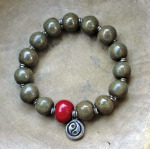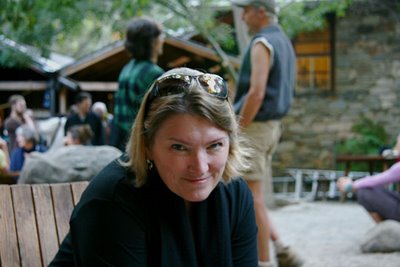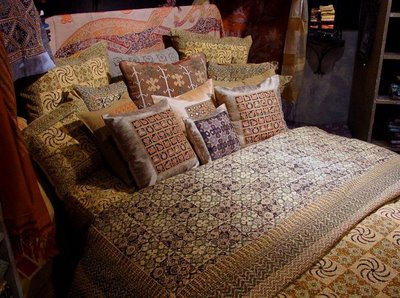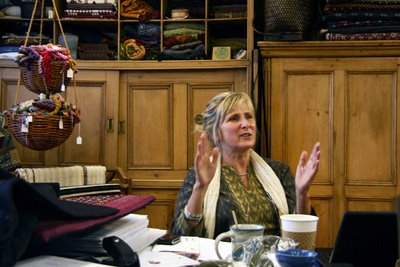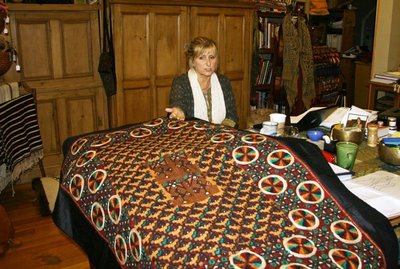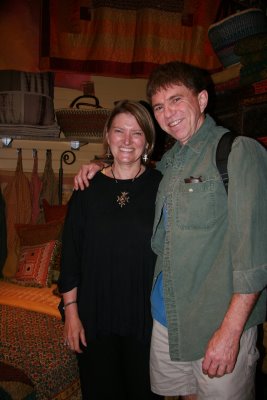On the road – Atlanta
 Wednesday, October 8, 2008 at 6:57PM
Wednesday, October 8, 2008 at 6:57PM  So we’re off. Our journey has begun. And this time it’s not just a preliminary jaunt to British Columbia.
So we’re off. Our journey has begun. And this time it’s not just a preliminary jaunt to British Columbia.
“Has it sunk in?” I asked Debi on the plane.
“No. Not really. How about with you?”
“A little bit. I imagine we’ll only realize it in fits and starts.”
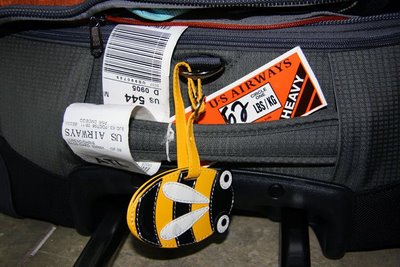 The final weeks at home were such a whirlwind of activity that we’re still carrying some of that whirlwind as a personal weather around our heads. And how do you say goodbye to so many people you love? The night before our flight –- that is, the night before last -- a few friends stopped by to say goodbye and share a beer or glass of wine.
The final weeks at home were such a whirlwind of activity that we’re still carrying some of that whirlwind as a personal weather around our heads. And how do you say goodbye to so many people you love? The night before our flight –- that is, the night before last -- a few friends stopped by to say goodbye and share a beer or glass of wine.
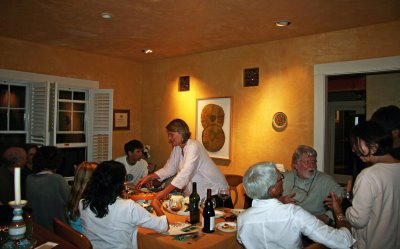 In the morning we couldn’t find Ana Maria anywhere. Her room was already locked up from the outside. She told us today by phone that she deliberately left her room early because she couldn’t bear to say goodbye. She watched us leave secretly instead – from a window across the street, as she cried.
In the morning we couldn’t find Ana Maria anywhere. Her room was already locked up from the outside. She told us today by phone that she deliberately left her room early because she couldn’t bear to say goodbye. She watched us leave secretly instead – from a window across the street, as she cried.
There was sweetness and irony in saying goodbye to Nate and Caitlin at the airport. This time it was they who stayed and waved and waved until we rounded the last corner and passed out of sight. This time it was the parents who left a mess behind that their children would have to figure out what to do with.
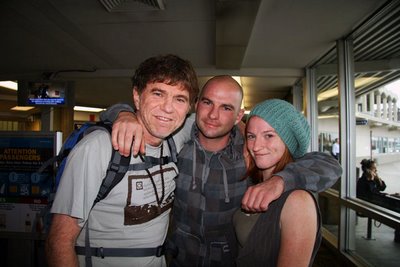 “It’s like you guys are going off to college this time,” Caitlin said.
“It’s like you guys are going off to college this time,” Caitlin said.
We’re in our friends’ Allison and David’s loft in Atlanta, not far from Ebenezer Baptist Church and the birth home of Dr. Martin Luther King, Jr. We’re listening to Bill Evans as I type.
Tomorrow we drive to Gee’s Bend, Alabama, to stay with Mary Ann Pettway and to visit with her and other Gee’s Bend quilters.

